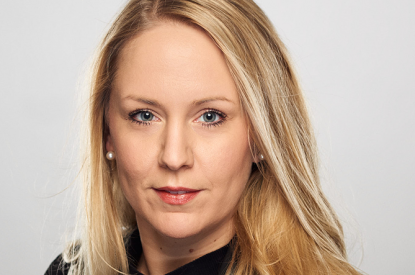Pulse
Austria – Assessing the impact of Covid-19
By Lewis - 15 July 2020
The Austrian Association for Betting and Gambling (OVWG) is the online gaming sector’s voice in Austria and strives to improve the dialogue between politics, authorities and operators. From a regulatory point of view, the OVWG aims for a modern regulation of online gambling and betting, which complies with EU law and market needs. Raffaela Zillner, Secretary General of the Association, provides a brief insight into the Austrian market and her assessment of the impact of Covid-19 on the sector.
“Due to terrible images from our neighbour state Italy, Austria reacted quickly to the virus. The lockdown began on March 16, which meant that business premises (including betting shops and casinos) were forced to close, sporting events were completely suspended and public life came to a standstill. On May 1, 1.2 million people were on short-time labour, among these many employees of land-based betting shops and casinos as well. Unemployment rose from 350,000 to 588,000 people, an increase of 60 percent. After the number of new infections had dropped significantly, the lockdown was gradually eased starting at the beginning of May. At the end of May, betting shops and casinos were allowed to reopen and the first bettable sports events were resumed.
Unlike many other countries, Austria has navigated through the COVID-19 crisis quite well, in particular with regards to its hospitalisation and death rates. The long-term economic consequences of the health crisis will mostly likely only be assessable in the aftermath of the crisis. A recently published market analysis from the market institute BRANCHENRADAR.com predicts that the overall gambling and sports betting market in Austria will decrease by 16 per cent in 2020.
Sports betting was hit particularly hard, with a decline in sales of around 70-80 per cent even in the online sector during lockdown. In online casino, the sales figures have remained stable, in some cases even decreased. The people in lockdown therefore did not play more than before, rather less; moreover, sports betting customers did not switch to online casino. The aforementioned market analysis even assumes that the strong growth dynamics – evident in online casino in recent years – will be reduced to around two per cent this year (before up to plus 25 per cent).
However, the way back is quite promising. Not least because the crisis has given a powerful boost to digitalisation. Sales figures in the online sector have already returned to an average of 70-80 per cent of the level before the lockdown; the situation at the end of the year of course depends on whether we will be confronted with a ‘second wave’ and how quickly normal competition in sport can be restored. On the other hand, the situation looks much worse for the landbased casino business where the crisis has exacerbated existing problems (too many employees, too high expenses).
The crisis has once again shown that there are many highly responsible operators in Austria. My members have not only severely restricted their advertising and, as always, met the highest standards of player protection, but they have also been strong allies to their sponsoring partners. In the near future, Austria will focus on its comeback.
This momentum is a chance for Austria to abolish the long-outdated monopoly in the online sector and introduce a licensing model that complies with European Union law. It is not only a chance for important funds to be raised (in addition to the €123 million gambling tax already paid in 2019 from private online operators, licence and annual fees could be waived), but also a chance for a uniform and high level of player protection. At the same time, such regulation would also push those operators out of the market who do not attach importance to player protection. At every step of the process, the OVWG is available to assist with its expert knowledge and the experience of its members in the implementation process.” June 30 2020


